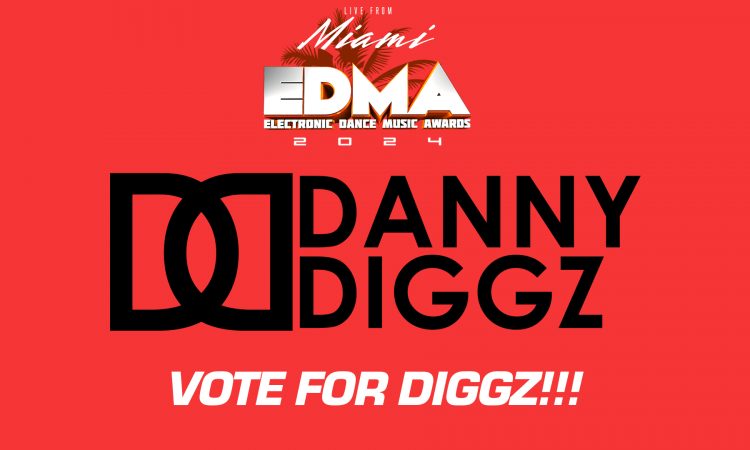André Benjamin is stressed.
“I am, I really am,” he says. Benjamin — André 3000 to the fans who idolize him as the visionary half of Outkast, Atlanta’s hugely influential, recently reunited hip-hop duo — is sitting at a glass conference table at Milk Studios in Hollywood, rubbing his graying temples. He’s just removed the round white Prada sunglasses he’s been rocking all day, although he’s still wearing a fluorescent orange ski cap.
“It didn’t get that way until about a year ago,” he says. “Now I’m feeling that pressure of doing something. I really do. I got to get into something.”
Funny thing is, Benjamin, 39, is plenty occupied at the moment. A week earlier, on Sept. 12 and 13, he played to 15,000 fans per day at Funk Fest Charlotte in North Carolina as part of a 47-date festival tour celebrating the 20th anniversary of Outkast, where he shares the spotlight with his longtime partner, Antwan “Big Boi” Patton. (Together they have sold more than 18 million albums and launched four top 10 Hot 100 singles, including two back-to-back No. 1 hits in 2004, “Hey Ya!” and “The Way You Move”; Billboard estimates that their tour, which ends in October, has pulled in nearly $30 million in revenue so far.)
Meanwhile, Benjamin is a week away from debuting his star-making turn as Jimi Hendrix in the biopic Jimi: All Is by My Side (XLrator Media), directed by John Ridley, which hits theaters Sept. 26 and fulfills a dream for Benjamin, who has been obsessed with Hendrix for many years.
But his fulfillment of that fixation and his massive tour with Big Boi are anomalies in a career that, since Outkast went on hiatus in 2007, has been largely limited to guest verses on other rappers’ songs. The new projects haven’t satisfied some kind of gnawing artistic hunger in Benjamin or reignited a desire for fame. If anything, they’ve just made him more acutely aware of the transitory nature of creativity.
“I was watching this Fellini documentary, and he was saying artists want complete freedom,” Benjamin says, reflecting on his winding journey, post-Outkast. “[But] usually, when artists get complete freedom, they end up doing nothing. And he was saying every artist needs some kind of opposition. My opposition is time, age. You can make music forever, but I think there’s a magic window. I think you can go beyond your magic window and still be the greatest instrumentalist and greatest artist, but anything outside that magic window is just not resonating the same.”
So what has Benjamin been up to these last seven years, besides watching documentaries and giving himself plenty of time to think?
He tried golf once, but it was too slow. Going out in Atlanta, where he lives, “just feels weird,” says Benjamin. “People spend their whole night taking pictures of you, and you’re sitting there in your cage, with your banana.” And after 14 years, the famously disciplined Benjamin even gave up veganism because it became “straight boredom.”
And while he spent way too much time on eBay, “buying stupid stuff, like old tennis rackets or jai alai [baskets],” he never did get into social media. I asked him if he wished he had more of a voice when events like the killing of Michael Brown in Ferguson, Mo., dominate the news.
“Honestly, I don’t have a big urge to voice [my feelings],” he says. “But I do feel kind of guilty sometimes. Like when the whole Ferguson thing went down, we were actually in England, and buddies were telling me about it, like, ‘Aw, man, it’s horrible here.’ But I didn’t feel it; I only heard about it. So I felt like, ‘Am I out of touch?’ ”
Since Outkast’s last album, Idlewild, came out in 2006, Benjamin has dedicated himself to caring for his 16-year-old son, Seven, whose mother is the R&B singer Erykah Badu. (Benjamin and Badu dated for about three years and broke up in 1998, when Seven was still a toddler.)
Meanwhile, his reputation as a rapper has continued to grow, stoked by his high-intensity features for other artists. (No doubt in part because he’s so choosy about the songs, which earn him at least $100,000 for a guest verse. In certain cases, after hearing a track, he says, “I had to call them back and say, ‘I’m sorry, I couldn’t come up with nothing cool.’ “)
Through the years, rappers from T.I. to 2 Chainz to J. Cole to Kendrick Lamar have called Benjamin one of the greatest lyricists of all time. On his 2002 song ” ’Till I Collapse,” Eminem put him in his top five rappers of all time; in a 2007 interview with XXL, Jay Z cited him as one of the top MCs; and Drake told Paper magazine in 2010 that he has “a shrine in my apartment dedicated to André.”
A few short weeks from now, when the tour ends and the movie’s opening recedes into memory, will Benjamin himself simply fade from view again? He’s got no plans for another movie or a solo album — never mind new Outkast music. And just to be clear, here’s how he explains that last one: “There are no plans to do [an Outkast album]. It’s not like some people think: ‘They’re about to drop this album!’ We don’t have, like, one song. There’s no trickery or nothing like that.”
“He’s the kind of artist who requires inspiration,” says Antonio “L.A.” Reid, 58, chairman and CEO of Epic Records, who signed Outkast in 1992.
Says Benjamin, sighing heavily: “At this age, the driver is just different, and I think for every artist, you’ve got to find out what’s pushing you. Like, what do you do it for? I didn’t grow up as a kid saying, ‘Man, I want to grow up to be a music star.’ ”
Benjamin’s earliest performance was as an actor, at Atlanta’s Sutton Middle School. The seventh-grade drama club, the Ritz Players, cast him as Avery in Charlotte’s Web. On a parents’ night performance, he missed an entrance cue because he was kissing a girl backstage. But the group’s director, Ina Gottlieb, exposed Benjamin to a different world. “She wanted to give us that English experience,” recalls Benjamin, “so she would bring biscuits and tea and milk. I’d never had tea with milk in it before.”
He grew up an only child who split time between his parents, who were never married. Benjamin was particularly close to his mother, Sharon, a real estate agent, who cautioned him against dropping out of high school to chase a music career — which he did anyway. When Benjamin and Big Boi were both 17, Reid signed Outkast to LaFace Records, where he was co-founder.
Before long, Benjamin had established himself as the group’s fashion-forward maverick to Big Boi’s streetwise pimp.
“André was at a video shoot,” recalls Reid with a laugh, “and an executive at my company called me and said, ‘André’s here, and he’s got on a blond wig, and he’s got on knickers and socks and a Nehru jacket, and I don’t know what he’s doing.’ And I remember calling André and saying, ‘Whatever you did at that video shoot, don’t stop doing it!’ He was evolving as a fashionista, an artiste, a rapper and just getting greater and greater.”
Outkast made six acclaimed albums. Their last one, Idlewild, soundtracked a movie musical directed by Bryan Barber that was set in a Deep South juke joint. But Speakerboxxx/The Love Below, a double-disc set released in 2003, was their commercial triumph, spawning “Hey Ya!” and “The Way You Move,” winning the Grammy for album of the year and eventually getting certified 11 times platinum.
The differences between Benjamin and Big Boi had always been obvious, but the album enshrined them: Speakerboxxx was for all intents and purposes a Big Boi solo album, and The Love Below was an all-
Benjamin production.
By the time they separated, Outkast was firmly established as one of hip-hop’s greatest groups. But Benjamin also acknowledges they were boxed in. “I think fans kind of feel like, ‘You made this,’ ” he says, grabbing a water bottle for comparison’s sake. “Keep making that because we like that.’ It’s like a factory kind of thing. And I totally get it, being a fan of different bands. But I never got into music to do it like that.”
Throughout Outkast’s ascendance, Benjamin took supporting roles in movies like Semi-Pro and Four Brothers, and his physical resemblance to Hendrix raised the possibility of him playing the guitar great. Almost a decade ago, John Ridley, the Oscar-winning screenwriter of 12 Years a Slave, became obsessed with a little-known Hendrix song called “Sending My Love to Linda.” That led him to write a screenplay focusing on the period in 1966 when Hendrix, until then a taciturn backing musician, left the United States for London, and subsequently returned as the brilliant and charismatic rock star who rocketed to fame at the 1967 Monterey Pop Festival.
Ridley approached Benjamin about the role, but Benjamin wasn’t sure he could pull it off. “I didn’t know if I was too old to play the part,” he recalls. “But John was really persistent, and he kept at it. So I just kind of said, ‘All right, let’s do it.’ ”
Before filming began in Ireland, Benjamin, who says he was “happy to have something to dive into,” went all in. “André spent seven and a half months working with me on the script, on the look, on being able to play the guitar left-handed, how he sounded,” says Ridley. “You know, the finest actors out there typically don’t give up seven and a half months to work on one project.”
Unfortunately, Benjamin didn’t get to play any actual Hendrix songs in the movie, whose producers could not reach a deal with the company that manages the Hendrix estate. Because it’s set in the year before the guitarist played his original songs at Monterey, the movie mostly features Benjamin as Hendrix covering other songs of the era, like “Sgt. Pepper’s Lonely Hearts Club Band.”
While Jimi has provided Benjamin’s most substantial role to date by far, and early reviews of his performance have been glowing, he doesn’t have any future acting projects lined up. “I do read scripts,” he says. “But I have to be excited about it to really fully throw myself into it. The older I get, I don’t know what my decisions will be. I may start just taking roles just to support myself, just kind of keep busy.”
Not that Benjamin’s hurting for money. He acknowledges that the Outkast anniversary tour provided a nice payday — although, “If I didn’t have a kid, I don’t know if my urgency would be the same.”
Cash doesn’t stir him. Nor does nostalgia. “My thing as a music fan is, I want to get it fresh. I want to hear the music when they were in it, when they were gung-ho about it,” he says. And as an artist? “Of course, I enjoy fans loving it. It’s just different to do songs now that I wrote when I was 19, 20. They don’t mean the same to me.”
“He’s made a lot of money, he will continue to make a lot of money, but there was never a day that I felt he was doing it for money,” says Reid. “This is not the guy who says, ‘I’m going to give you 16 bars so I can go buy a new Range Rover.’ He’s just not cut from that cloth.”
Given all the guest verses Benjamin has done, why hasn’t he contributed to any of Big Boi’s solo albums? “I didn’t want to get back in the same car,” he says. “At that point, it’s just an Outkast song, you know what I mean?”
He hardly seems to realize how enticing that sounds. Outkast, such as it is, is signed to Reid’s Epic, along with Benjamin and Big Boi individually.
“I don’t know when we’ll get a new Outkast album,” says Reid, “but I do believe that we will get individual solo albums from André and from Big Boi, and my guess is that it will be before the year ends.”
Don’t be so sure. “I know Big Boi’s [working on his]; I haven’t even started on [mine],” says Benjamin, then adds, sounding his common refrain: “I’ve got to find something I’m excited about.”
For the record, he’s not done with rapping: “To be clear, there’s no retirement.” And he’s not in conflict with Big Boi: “It’s kind of like growing up in a house with your brother, people expecting y’all to live in the same room and have bunk beds forever,” says Benjamin. “And people try to read into it and say people are beefing. But it’s nothing like that, man. Big Boi will always be my brother and a really important part of my life.”
As the afternoon winds down, the sunglasses go back on. Benjamin’s spending a few days in Los Angeles promoting Jimi, and then, once the movie comes out, he will make the few final stops on Outkast’s reunion tour, including a sold-out series of highly anticipated Atlanta homecoming shows.
He recently produced a track for Aretha Franklin’s upcoming album. (“She’s amazing.”) His mother passed away a year ago; his father died earlier this year. His son, Seven, has moved back to Dallas, leaving his dad an empty nester. You could say a purple haze hangs over Benjamin’s future.
“I feel like I will do music in some kind of way, but something that can hit music from the back door,” says Benjamin. “Like, if I start to write screenplays and I want to [compose the soundtrack]. Or if I’m making certain product designs and I just want to release music with every shirt I design.”
Maybe that sounds like a low bar for a man who redefined the boundaries of rap and soulfully embodied Jimi Hendrix. But as Ridley says, “When you spend time with André, you get the sense that this is a person of depth, and has reach and has emotion, and there’s a curiosity beyond the superficial.” In other words, if he makes shirts with songs, some genuine insight will have brought him there.
Or as Reid puts it: “He doesn’t go through the motions as an artist. I think that the tour has been tough for him because in a lot of ways he felt he had to go through the motions of celebrating and performing things from his past, when he would much rather be performing and celebrating his future or his present.”
Whatever happens next, and whenever it happens, Reid says he believes we have yet to see the best of Benjamin. If Benjamin sees Fellini as defining a fast-closing “magic window” of artistic opportunity, another master’s example encourages him to keep exploring — at any cost: “At one time, Picasso made really beautiful classical pieces. Then he started putting eyes here and there, because he had to. And then he stopped painting altogether and sculpted. You got to give people a chance. And if you don’t like that part of their journey, just turn off. Go to someone else at that point.”
DOWNLOAD ON DMS



